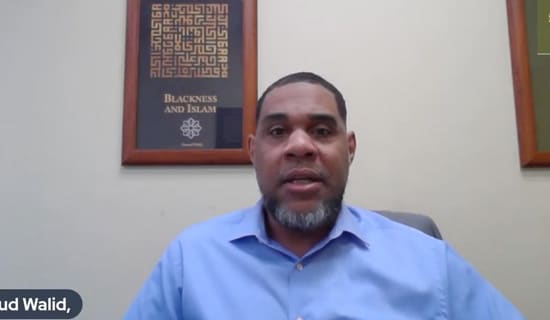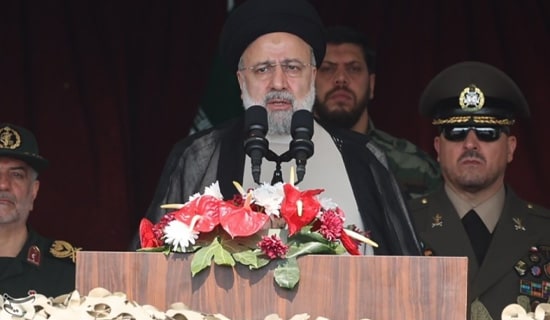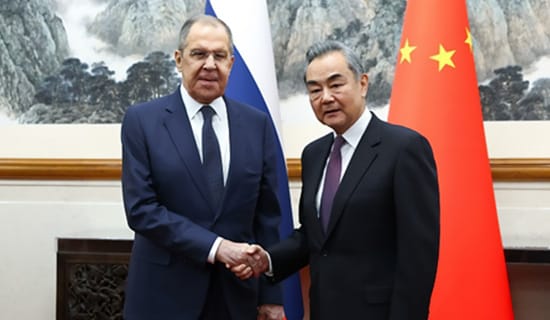The following are two open letters, criticizing the Russian authorities for their "hypocrisy," and signed by Russian intellectuals and human rights activists. These letters were triggered by the unveiling of the Wall of Grief monument dedicated to the victims of Stalinist terror during the 1930s. The signers were disgusted by the prominent role assumed by Russian officialdom in the ceremony. They believe that the political system presided over by Vladimir Putin represses political opponents employing methods reminiscent of Stalinist times.
The first communiqué, launched by the Congress of Intelligentsia and the Human Rights Community, states that the unveiling of the Wall of Grief monument to the victims of political repressions of 1930s does not bring this tragedy to its final conclusion.[1] "The past is gradually returning: instead of old terms 'the enemy of the people', 'spy', 'saboteur', new ones have been introduced, which are not much different from the ones used before: 'foreign agent', 'undesirable organization', 'fifth column'," states the petition. The signers demand a halt to the trials of Russian stage director Kirill Serebrennikov and Russian historian Yuri Dmitriev and other politically motivated trials.[2]
The second communiqué was written by former political prisoners and members of the Democratic Movement of the Soviet Union.[3] The communiqué states that by unveiling the Wall Grief monument, the current Russian government is trying to pretend that political repression is a thing of the past. However,, the same authoritarian practices remain and continue to claim their victims. "We declare with all confidence that Russia’s current political prisoners are worthy of our help and attention no less than the victims of the Soviet regime are worthy of our memory and respect," state the communiqué's signers.

The Wall of Grief in Moscow (Source: Ej.ru)
Statement By The Congress Of Intelligentsia And The Human Rights Community: 'We Demand!'
"On October 30 this year, eighty years after the peak of repressions perpetrated by Soviet power against the entire Russian people ever since the first months of its [the Soviet Union's] existence, an event of great importance will take place – the unveiling of a monument commemorating the victims of the 1930s' political repressions. For the people currently in power it was a difficult step, but this gesture was finally made, although it was long overdue and came after long hesitations. It is a sign of acknowledgement of crimes committed in the 1930s. Unfortunately, this tragedy has not been brought to its final conclusion.
"As we know, Stalinist purges started with a bullying campaign against opponents in the press and on party meetings, and ended with torture in the Lubyanka basements, a single shot to the back of the head, or mass shootings.
"Today, eighty years later, the past is gradually returning: instead of old terms 'the enemy of the people', 'spy', 'saboteur', new ones have been introduced, which do not differ very much from the ones used before: 'foreign agent', 'undesirable organization', 'fifth column'. An atmosphere of suspicion, antagonism, and hunting for enemies is being restored. These tendencies have become especially clear since 2012 [the year of protests against electoral fraud in the 2012 presidential elections].
"We are observing an intensifying bullying of the opposition, which is essentially, the chief feedback mechanism between society and the state.
"We are witnessing the development of a bullying campaign against political opponents on federal TV channels, and targets of this campaign are becoming real victims. The most striking example is the [2015] murder of Boris Nemtsov. One can put into the same category the attempt on [popular host at the independent Echo of Moscow radio station] Yulia Latynina's life, violent actions against Alexei Navalny, multiple threats against all those who have the courage to criticize the state. On October 23, the attempted murder of a journalist from the Echo of Moscow radio station, Tatiana Felgenhauer occurred.[4] A few days previously, several programs on the Russia-24 TV channel had claimed that the Echo of Moscow radio station was engaging in 'anti-state activities'. Without doubt, all these events are links in a chain.
"A recent dramatic event is the trial of Yuri Dmitriev, who has given three decades of his life to locating nameless graves and execution pits, where our murdered compatriots are lying and to reconstructing their memory. On the day the monument is unveiled, October 30, Dmitriev will be in a detention center, awaiting his sentence and long imprisonment.
SUPPORT OUR WORK

"Modern Russia is moving along the same tracks that brought the country to the catastrophe of 1937-38. We must do everything in our power to stop this train in time.
"Problems have arisen in the country which require an open and comprehensive discussion, not name-calling. Today, people who think that Russia should be moving along the European path, and not along the path of isolation that would turn it into a gigantic North Korea, have found themselves classed as dissidents.
"We urge the authorities to realize the fact that a modern state cannot exist normally if the ruling power is not confronted by a strong opposition, which has equal rights and opportunities to spread their ideas and is equally protected by the state. It is vital for our entire society and for the institute of power itself.
"We demand that the authorities stop the bullying campaign against the dissidents on federal TV channels and that they shut down political TV programs that lead this vile campaign.
"We demand a stop to the shameful trials of Kirill Serebrennikov and Yuri Dmitriev and to other politically motivated trials, as well as the release of all political prisoners.
"Installation of a monument to the victims of political repression of Stalin’s regime must become a guarantee that eighty years later, our descendants will not have to unveil another monument – to the victims of repressions of 2010s-2020s."
Ej.ru Statement: 'Supporting The Hypocrisy Of The Authorities Is Immoral'
"We, former political prisoners and members of the democratic movement of the Soviet Union, consider the unveiling of the monument to the victims of political repression in Moscow to be ill-timed and cynical. A monument is a tribute to the past, but political persecutions in Russia not only continue – they are on the rise.
"By sponsoring the unveiling of the monument, the current Russian government is trying to pretend that political repression is a thing of the past, and therefore the memory of victims of persecutions can be immortalized in stone. We declare with complete confidence that Russia’s current political prisoners are worthy of our help and attention no less than the victims of the Soviet regime are worthy of our remembrance and respect.
"It is impossible to sincerely mourn the past and at the same time cunningly turn a blind eye to the present. One cannot divide victims of political repression into those for whom it is already possible to erect monumnets and those who are still unworthy of notice. One cannot participate in commemorative events sponsored by the government that verbally regrets the victims of the Soviet regime, but in practice continues political persecutions and suppresses civil liberties in the country. One cannot allow the authoritarian power to unveil monuments to victims of repression with one hand and [act] arbitrarily and lawlessly with the other. Cooperating with the authorities on this issue is amoral at the very least.
"A monument to victims of political repression, undoubtedly, should be erected in Moscow, but only when there are no longer any political prisoners in our country, when torturers are punished and political persecutions are no longer the topic of news reports but are exclusively a research topic for historians."
[1] Nowarcongress.com, October 27, 2017.
See MEMRI Special Dispatch No. 7177, At The Opening Of Russia's Wall Of Grief, Patriarch Kirill Criticizes The Bolshevik Revolution On Its 100th Anniversary And Warns Against Fomenting New Revolutions, November 13, 2017.
[2] MEMRI Special Dispatch No. 7015, Russian Art Under Attack, July 18, 2017.
MEMRI Special Dispatch No. 7075, Reactions To House Arrest Of Prominent Russian Stage And Film Director Serebrennikov, September 1, 2017.
See also Stalin's Shadow: How a Gulag Historian Fell Victim to Russia's Dark Past, Themoscowtimes.com, June 9, 2017.
[3] Ej.ru, October 30, 2017.
[4] See MEMRI Special Dispatch No. 7154, Echo Moscow Attack, October 30, 2017.




